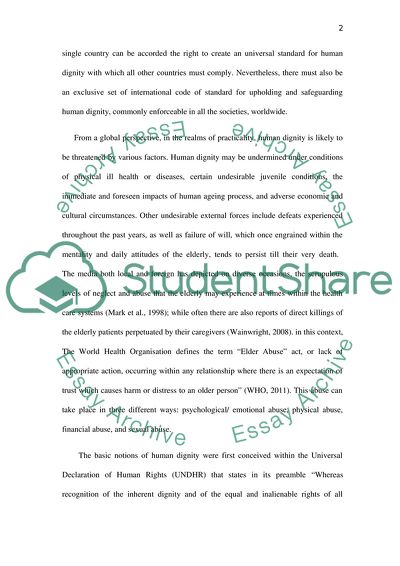Cite this document
(Dignity in Elderly Care Thesis Proposal Example | Topics and Well Written Essays - 3500 words - 1, n.d.)
Dignity in Elderly Care Thesis Proposal Example | Topics and Well Written Essays - 3500 words - 1. Retrieved from https://studentshare.org/nursing/1749956-introduction-of-thesis-dignity-in-elderly-care
Dignity in Elderly Care Thesis Proposal Example | Topics and Well Written Essays - 3500 words - 1. Retrieved from https://studentshare.org/nursing/1749956-introduction-of-thesis-dignity-in-elderly-care
(Dignity in Elderly Care Thesis Proposal Example | Topics and Well Written Essays - 3500 Words - 1)
Dignity in Elderly Care Thesis Proposal Example | Topics and Well Written Essays - 3500 Words - 1. https://studentshare.org/nursing/1749956-introduction-of-thesis-dignity-in-elderly-care.
Dignity in Elderly Care Thesis Proposal Example | Topics and Well Written Essays - 3500 Words - 1. https://studentshare.org/nursing/1749956-introduction-of-thesis-dignity-in-elderly-care.
“Dignity in Elderly Care Thesis Proposal Example | Topics and Well Written Essays - 3500 Words - 1”, n.d. https://studentshare.org/nursing/1749956-introduction-of-thesis-dignity-in-elderly-care.


